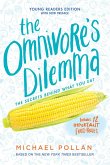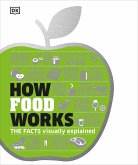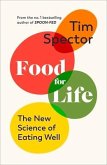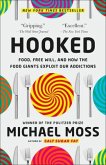In Food, John Coveney examines 'food as ... ' identity, politics, industry, regulation, the environment, justice and gastronomy. He explores how food helps us understand what it means to be human.
The centrality of food in life, and the importance of food as life, is undeniable. As a source of biological substrates, personal pleasure and political power, food is and has been an enduring requirement of human biological, social and cultural existence. In recent years, interest in food has increased across the academic, public and popular spheres, fuelled by popular media's constant play on the role of food and body size, and food and cooking, as a mass spectacle for TV audiences. Through food, we construct our social identities, our families and communities. However, Coveney also highlights the tensions between the industrialisation of food, the environment, and the iniquitous distribution of food. He also considers how the food industries, on which most of us must rely, have also had direct effects on our bodies through diet, and the development of illness and diseases.
This accessible primer is for students and general readers alike, indeed, for anyone with an interest in food. It questions the idea that food is merely something inert on the plate. Instead, it shows how influential, symbolic, powerful and transformative food has come to be.
The centrality of food in life, and the importance of food as life, is undeniable. As a source of biological substrates, personal pleasure and political power, food is and has been an enduring requirement of human biological, social and cultural existence. In recent years, interest in food has increased across the academic, public and popular spheres, fuelled by popular media's constant play on the role of food and body size, and food and cooking, as a mass spectacle for TV audiences. Through food, we construct our social identities, our families and communities. However, Coveney also highlights the tensions between the industrialisation of food, the environment, and the iniquitous distribution of food. He also considers how the food industries, on which most of us must rely, have also had direct effects on our bodies through diet, and the development of illness and diseases.
This accessible primer is for students and general readers alike, indeed, for anyone with an interest in food. It questions the idea that food is merely something inert on the plate. Instead, it shows how influential, symbolic, powerful and transformative food has come to be.








